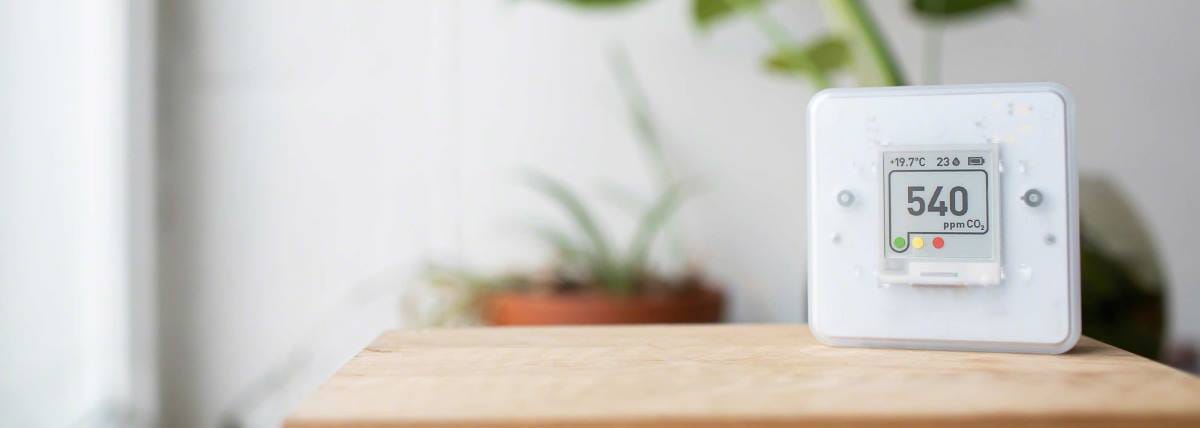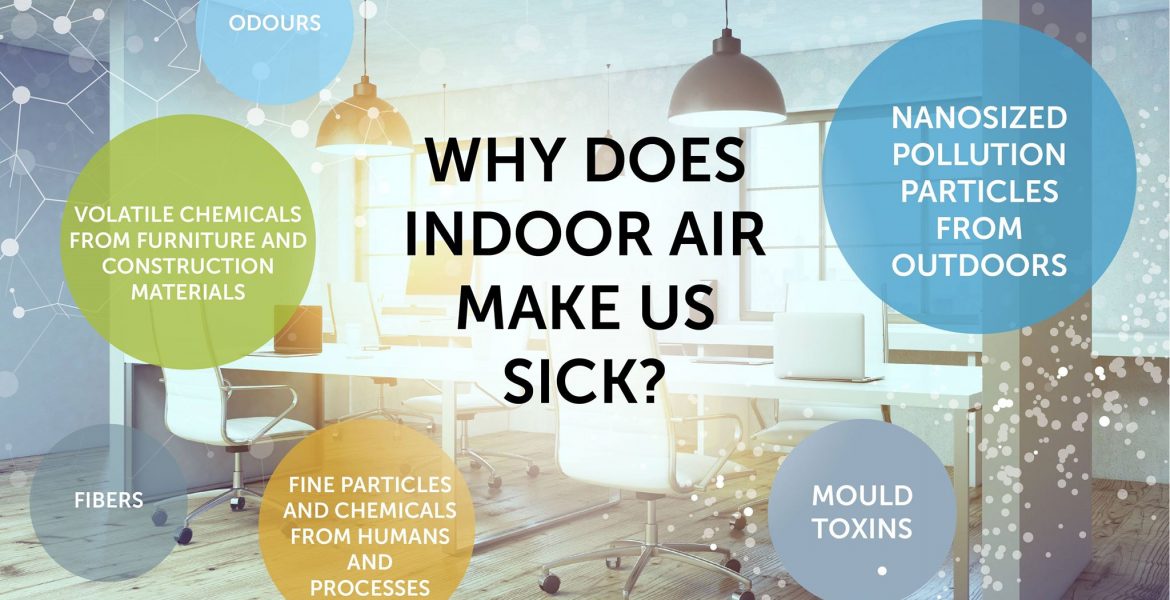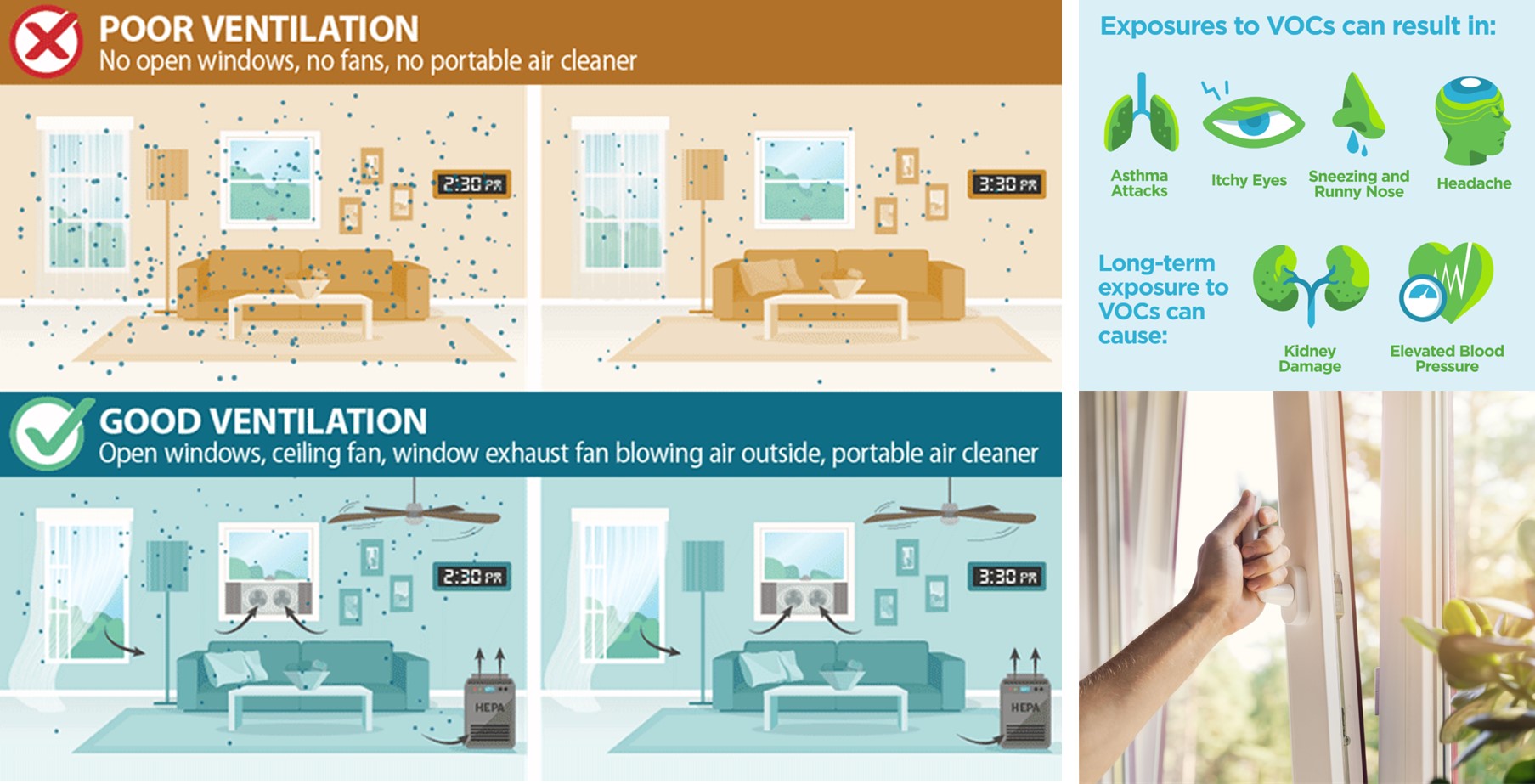Indoor air quality and our health
Encon Associates Sustainability Consultant, Beatryz Botelho Budacs explores the relationship between the quality of indoor air and our health

Encon Associates Sustainability Consultant, Beatryz Botelho Budacs explores the relationship between the quality of indoor air and our health
My relationship with buildings began in my childhood, not through drawings and playing The Sims, but the countless visits to the hospital regarding respiratory problems and allergies.

I wondered, “Why do I feel good when I go on vacation to the beach or the countryside, and when I arrive home, I have allergies?” Nowadays I understand that the black Mold in my room, the highway next door, and its intense car traffic were influencing this. After moving from this house and region, the intermittent headaches, and allergic and respiratory crises decreased and, since living in Nottingham, they disappeared.
But why am I talking about this and what is all this about?...
…Air Quality!
The complex indoor air quality subject keeps in consideration a broad range of factors such as the building location, humidity, carbon dioxide (CO2) concentration, type of ventilation, and the Volatile Organic Compounds (VOCs), found on furniture (formaldehyde), wall paints, cleaning chemical products, scents, type of heater, mold, and dust.

Have you ever considered how many hours a day you are indoors? At your car/bus going to work at the office, in your own house and bedroom? We spend more than 90% of our lifetime indoors, as confirmed by WHO. Now, imagine what an unhealthy IAQ can cause to our well-being. People living in this condition are highly susceptible to:
- Headaches, Nausea, Fatigue, dizziness.
- Irritation to eyes, throat, or nose and skin reaction (allergies).
- Cancer, Liver, and Kidney damage on long-term exposure.
- Tiredness and difficulty concentrating.
In contrast, a healthy Air Quality environment can provide good benefits for your health and productivity:
- Improvement of productivity and cognition, resulting in a 10% reduction in sick leave and a corresponding 10% boost in productivity
- Restorative sleep, enhancing work and study performance.
- You will be less likely to develop diseases such as Diabetes, Cancer, and Dementia, in the long term and reduce allergies.
- Better blood pressure levels.
The intention here is not to make you feel desperate or ignore these “invisible” issues but to raise awareness and encourage habits to avoid VOCs and increase your home IAQ, you could consider the following practices:
- Keep it ventilated: Airing a room for 15-30min/day can significantly reduce the indoor pollutants concentration. Especially during the winter.
- Use IAQ Metering at your home: Since hazardous particles are odourless and invisible to the eyes, it is helpful to monitor them through Air Quality Monitors and VOC meters.
- Pay attention to the products you purchase: Read the label of all the products you will buy It’s time-consuming.
- Opt for eco-friendly cleaning products, when not possible, avoid those containing VOCs, such as benzene, ethylene glycol, formaldehyde, methylene chloride, etc.
Remember: Less is more when it comes to cleaning product ingredients.
- Have an Air purifier: They will effectively filter harmful particles from the air, increasing your health.
- Get your house tested: Several Domestic VOCs are available on the market. Consider testing your home, to identify sources and take the appropriate action.
In conclusion...
The World Health Organisation has estimated that ambient and Household air pollution is associated with 6.7 million premature deaths annually around the world, its importance is comprehensive and demonstrates why BREEAM UK NC has 2 exclusive sections for Air Quality which aim to reduce hazardous air pollution by planning strategies, avoiding hazardous indoor air pollutants emissions, and opting for non-hazardous ones.

A few simple changes to your home, even just opening your windows regularly, could make a huge difference to your health and well-being.
Written by Beatryz Botelho Budacs, Graduate Sustainability Consultant